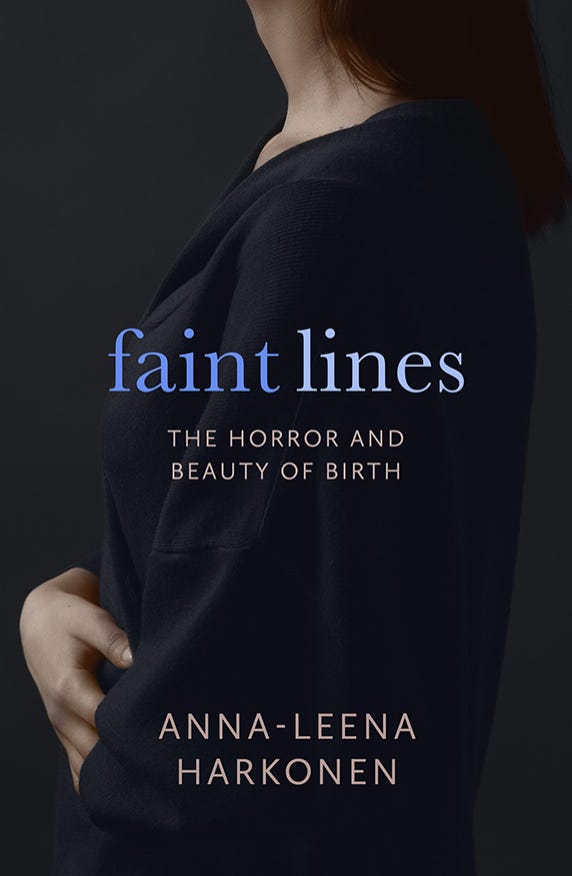Faint Lines
The author embarks on a new project: a script about childlessness. She researches the topic and interviews women who have gone through miscarriages and years of infertility treatments.
She promises them one thing: she will not write the usual story, where the woman gets pregnant in the end.
Midway through writing, she realizes she wants a baby. After several miscarriages, she discovers she is pregnant again. She learns that the process of creating a new life can be complicated—even more so if you have lived in the public eye since the age of eighteen. In the process, she nearly loses her sanity, her dark sense of humor, and her will to live.
In Faint Lines, Harkonen writes about her postpartum depression, which bordered on psychosis. She suffered from severe sleep deprivation during her pregnancy and had great difficulty breastfeeding after the birth of her son. The feeling of failure and inferiority was unbearable.
“Dead tired, I kept stressing about breastfeeding. I couldn’t produce much milk, but I kept trying desperately because the doctors and nurses urged me to. They told me the closeness was important for the baby, and I thought I was ruining his life from the very beginning.”
An autobiographical work of fiction, Faint Lines is an uncompromisingly honest account that captures the beauty, vulnerability, and occasional absurdity of life. Sometimes light cannot be found without venturing into darkness.
One of the leading names in Nordic fiction, Anna-Leena Harkonen emerged on the literary scene at the age of eighteen with How to Kill a Bull, one of the highest-selling first novels in the history of Finnish literature. She has also won multiple awards for her work as an actress.





